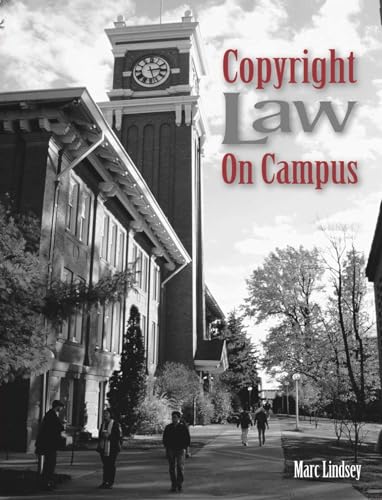"Sharing information is the fundamental nature of education. Restricting the sharing of information is the fundamental nature of copyright law." When...
Read more
these opposing objectives collide, administrators, instructors, and students can have difficulty determining legal boundaries. Whether a project involves music, homework assignments, the Internet, distance education, or classroom materials, the newly published Copyright Law on Campus will assist individuals and institutions involved in education as they navigate the complex world of copyright law. Author Marc Lindsey explores the reasons behind copyright, the exclusive rights granted to the holder, and the duration of those rights. He describes the circumstances that allow unrestricted copying and provides information and resources regarding public domain. He presents the risks of infringement, how to limit vulnerability, and explains when a violation becomes a criminal offense. Often using examples from his own campus experience, he covers the four factors of fair use, and then shows how to analyze them and apply the facts to specific situations. Extensively researched, Lindsey’s concise reference tool explains how the latest legal developments, such as the Digital Millennium Copyright Act and the TEACH act, can safeguard educational institutions. He reveals what is required to gain that protection, and how to initiate campus policies and copyright education programs. He also discusses the most conservative interpretation of the statutes with regard to classrooms, including the advantages and disadvantages for establishing those guidelines as policy. With chapters on obtaining permission, the Internet, distance education, and more, this new book is sure to serve as a valuable resource on campuses nationwide.
Hide more


